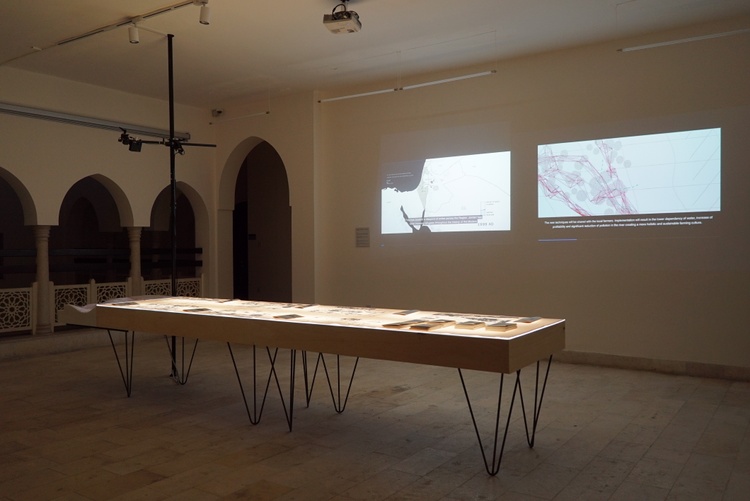A
AIA CES Credits
AV Office
321M Fayerweather Hall
Abstract Publication
415 Avery Hall
Academic Affairs
400 Avery Hall
Academic Calendar, Columbia University
Academic Calendar, GSAPP
Admissions Office
407 Avery Hall
1172 Amsterdam Avenue
New York, New York 10027
Advanced Standing Waiver Form
Must be printed and returned to 400 Avery Hall
Alumni Board
Alumni Office
405 Avery Hall
1172 Amsterdam Avenue
New York, New York 10027
Architecture Studio Lottery
Assistantships
Avery Library
300 Avery Hall
1172 Amsterdam Avenue
New York, NY 10027
Avery Review
Avery Shorts
B
Black Student Alliance at Columbia GSAPP
Building Science & Technology Waivers
Bulletin Archive
C
Career Services
300M Avery Hall
Columbia Books on Architecture and the City
Commencement
Communications Office
415 Avery Hall
Conversations podcast
Counseling and Psychological Services
Courses
Credentials Verification
Credit Transfer
Cross Registration
D
Dean’s Letter
Dean’s Office
402 Avery Hall
1172 Amsterdam Avenue
New York, NY 10027
Development Office
404 Avery Hall
Directory of Classes (All Columbia University)
Disability Services
Dodge Fitness Center
3030 Broadway Dodge
Dual Degree Program Requirements
E
End of Year Show
Events Office
415 Avery Hall
External Funding Sources
F
Faculty Directory
Feedback
Finance Office
406 Avery Hall
Fitch Colloquium
Future Anterior Journal
G
GSAPPX+
Grades
Graduation
Graphics Project
H
Honor System
Human Resources
Hybrid Pedagogy Resources
I
IT Helpdesk Ticket, GSAPP
IT Office, GSAPP
IT, Columbia University (CUIT)
Identity
International Students and Scholars Office (ISSO)
N
News and Press Releases
Newsletter Sign Up
Non-Discrimination Statement and Policy
O
Onera Prize for Historic Preservation
Online Admissions Application
GSAPP Admissions 407 Avery Hall
Output Shop
116 Avery Hall
1172 Amsterdam Avenue
New York, NY 10027
Ownership of Student Work Policy
P
Paris Prize, Buell Center
Paul S. Byard Memorial Lecture Series
Percival & Naomi Goodman Fellowship
Plagiarism Policy
Policies & Resources
Press Releases
Publications Office
415 Avery Hall
1172 Amsterdam Avenue
New York, New York 10027
R
Registration
Registration: Add / Drop Form
Room Reservations
S
STEM Designation
Satisfactory Academic Progress
Scholarships
Skill Trails
Student Affairs
400 Avery Hall
Student Awards
Student Conduct
Student Council (All Programs)
Student Financial Services
Student Health Services at Columbia
Student Organization Handbook
Student Organizations
Student Services Center
205 Kent Hall
Student Services Online (SSOL)
Student Work Online
Studio Culture Policy
Studio Procedures
Summer Workshops
Support GSAPP
This exhibition showcases work produced in the Urban Design Studio at Columbia University’s GSAPP, developed by students with the guidance of GSAPP faculty and the Studio-X team in Amman. The studio travelled to Amman in January 2017 for field visits and workshop sessions. Joined by architecture students and recent graduates from Jordan, the group visited key water-related sites in Amman and along the Jordan Valley. They conducted on-the-ground research, spoke with experts and stakeholders, attended lectures and synthesized their finding in an intensive three-day workshop.
The Urban Design Program at Columbia is investigating climate response at multiple scales and collaborating with partners in institutions around the world and within the University from science & engineering, journalism, conflict resolution, economics and social justice. We aim to marshal the observations of the world’s best scientists and the agency of design toward action and defined, replicable climate adaptation projects in the world’s most vulnerable regions. We bring synthetic design thinking to this process and a stance of activism and engagement and believe that by building physical, resilient places we engage and educate communities about the risks they face. How we live with - and design for - water will be a central, defining element of the next century relative to climate change and urbanism. Jordan is one of the most water scarce countries in the world, and also is threatened with extreme heat due to climate change. This situation is exacerbated by political and social conflict with neighboring countries.
Water is constantly in motion, changing states, crossing borders, nourishing (and destroying) life. How can water and urbanism be considered together as a generative frame for urban design practice, social life, and ecological regeneration? The spring semester 2017 design studio investigated urbanization challenges in two regions with robust ecological contexts, intense migration, resource conflicts, and urban growth trajectories: Amman and the Lower Jordan River Valley, and Kolkata, India and the Sundarbans tidal mangrove forest. In both cases, the studio explored the dynamics of climate adaptation relative to migration and climate change, alongside the generation of new social infrastructure, public space and urban design in an expanded rural-urban context. The seven projects displayed here operate at multiple scales, linking territorial independencies, to operational landscapes, to pilot sites of detailed investigation for design exploration and on-the-ground change in Jordan.
Columbia UD Faculty: Kate Orff (studio coordinator), Nora Akawi, Dilip DaCunha, Ziad Jamaleddine, Petra Kempf, Laura Kurgan, Geeta Mehta, and Julia Watson.
Special thanks to Jawad Dukhgan of Studio-X Amman and to the Columbia Global Centers | Amman.
- Kate Orff Director, Urban Design Program, Columbia University GSAPP
Exhibition design and setup by: Jawad Dukhgan, Huai-Kuan Chung and Nadine Fattaleh







